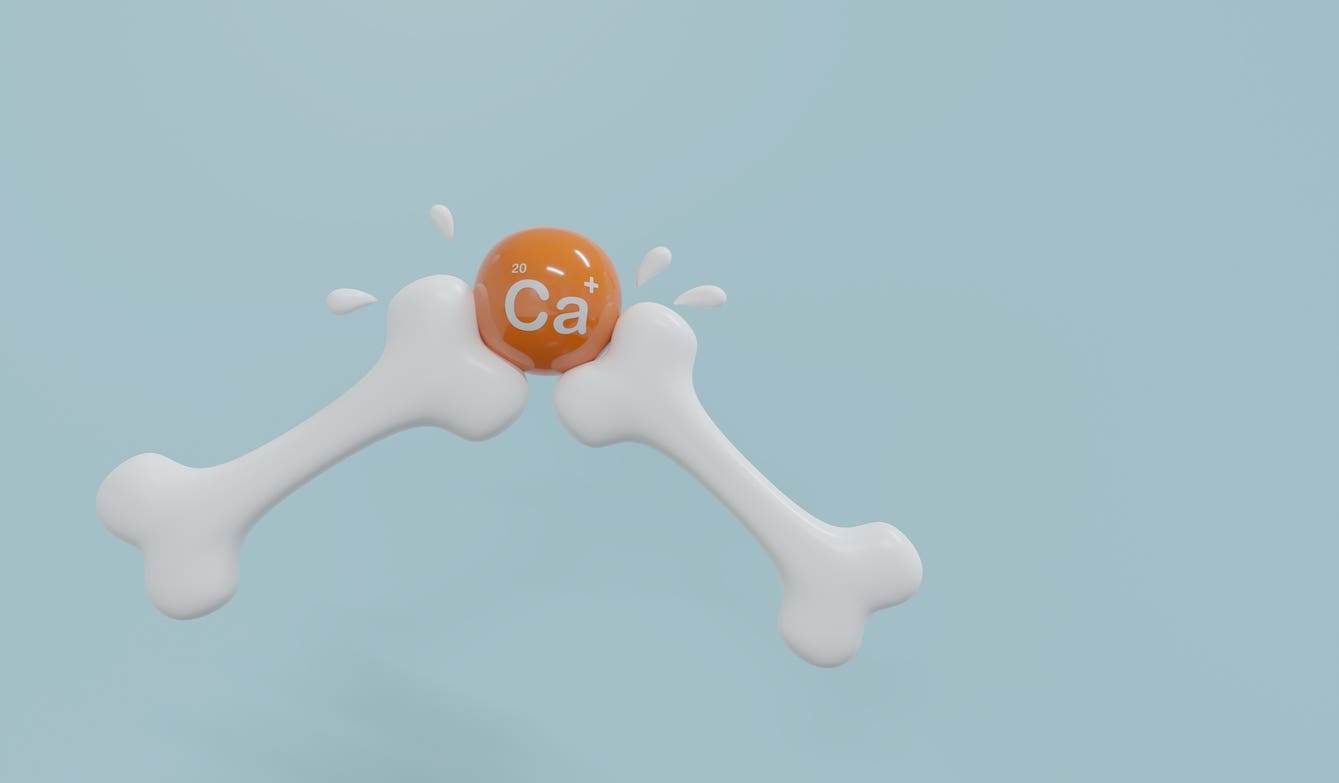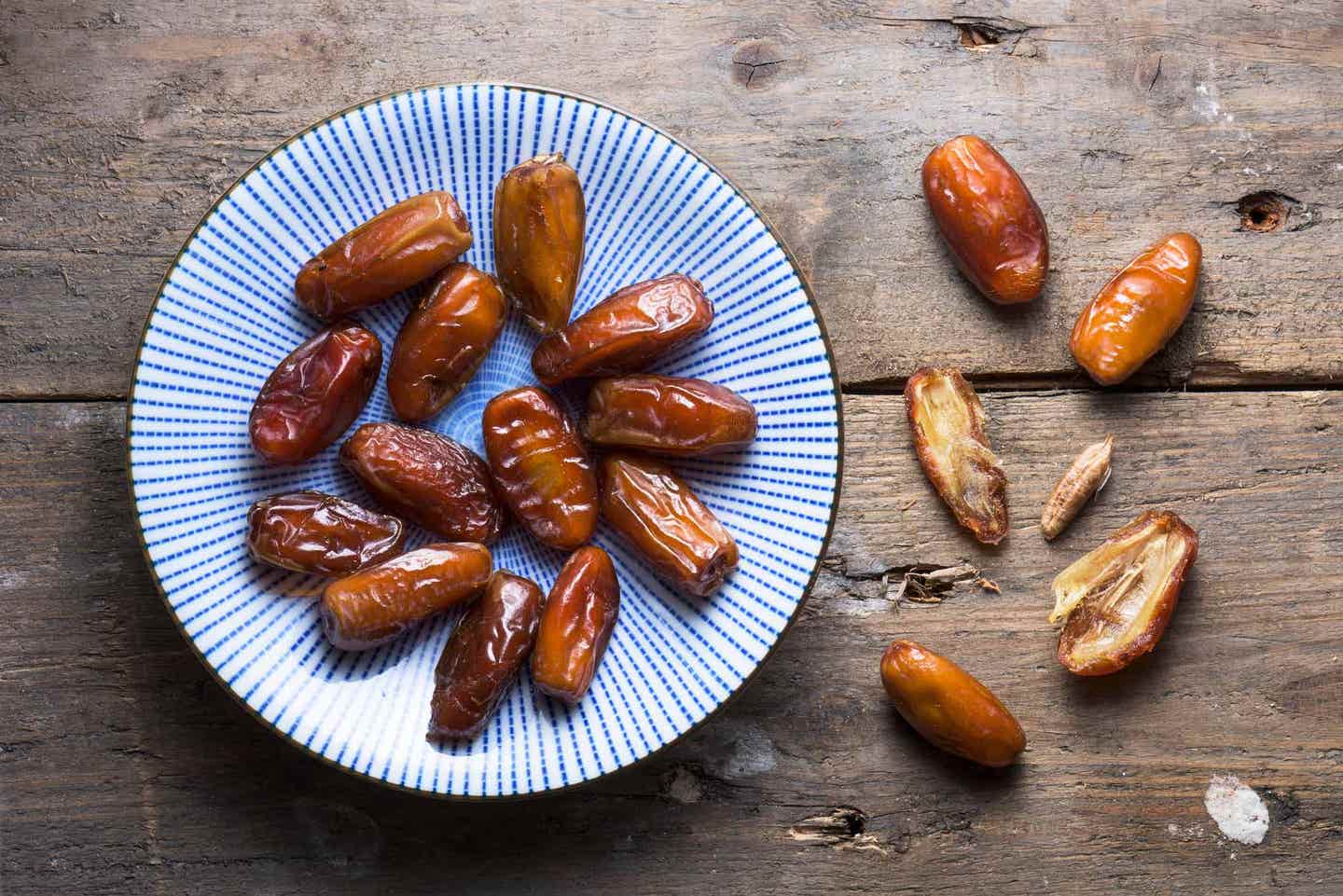
Getting Clarity About Calcium
The subject of calcium is a hotly debated one. One of the biggest controversies is whether or not we can really get enough calcium following a whole-food, plant-based diet that excludes dairy. To help clarify this important topic, we'll tackle the more common calcium questions, one at a time. Read on, or click below to jump to a specific question.
- How much calcium do I really need?
- Can I really get enough calcium eating just plants?
- What is calcium absorption, and why is it important?
- What factors (or foods) make me lose calcium?
- Can’t I just fix everything by taking calcium supplements?
How Much Calcium Do I Really Need?
The current daily recommended allowance for calcium for most adults is 1,000 to 1,200 milligrams. However, plant-based health experts believe these requirements are high for a simple reason: a diet high in animal protein has a high excretion rate, which means you are forced to consume more calcium to make up for the inherent calcium excretion. When following a whole-food, plant-based diet (that is also low in sodium and caffeine), calcium excretion rates are much lower, which logically means that a plant-based eater’s calcium intake can also be much lower.
How much lower? A study published by the American Journal of Clinical Nutrition showed that “individuals with low, but nutritionally adequate, intakes of sodium and protein may have calcium requirements as low as 500–741mg/day.”
Can I Really Get Enough Calcium Eating Just Plants?
Like iron, magnesium, and copper, calcium is a mineral. It is found in the soil, where it is absorbed into the roots of plants. Animals get their calcium by consuming these calcium-rich plants. So even though we are all conditioned to believe that calcium comes from milk and dairy products, the real source of calcium richness is the earth. No wonder that a whole-food, plant-based diet has plenty of calcium.
A varied diet of starches, vegetables, and fruits (without dairy) has sufficient calcium to meet our needs. If you eat a relatively low-calcium diet, your body will adjust. Studies show that when fed a relatively low-calcium diet (415 mg/day), our intestines become more efficient at absorbing calcium, and our kidneys conserve it better. Equally, when overfed with calcium (1,740 mg/day) our bodies adjust as well: our intestines block the calcium absorption, while our kidneys eliminate more. This is an example of how our bodies protect us: if not eliminated, the excess calcium would get deposited in our soft tissues (heart, kidneys, muscles, and skin), making us vulnerable to illness and even death … a true testament to how smart our bodies really are!
So your needs are met. Always.
At the end of the day, the “disease” of calcium deficiency from a calorically sufficient natural whole-food, plant-based diet is nonexistent.
How Much of the Calcium I Eat Is Actually Absorbed?
The amount of calcium we ingest may be less important than how much we actually absorb. For example, 1 cup of milk contains about 300 mg of calcium. But only about 30% of it (90 mg) is actually absorbable, and thus bioavailable (available to our bodies).
Let’s compare the calcium content and absorption rate of cow’s milk versus some plant-based alternatives:
- The calcium in firm tofu has about the same absorption rate as dairy products, hovering around 31%. And while ½ cup of tofu yields the same amount of calcium as 1 cup of milk (300 mg), it contains more protein, far less saturated fat, and about a tenth of the sodium.
- Calcium-intense vegetables like Chinese mustard greens enjoy absorption rates of around 40%. In terms of calcium content, 1/2 cup of these cooked greens will give you as much calcium as one glass of milk.
- One cup of bok choy, 1½ cups of kale, or 2 cups of broccoli contain the same amount of calcium as a glass of milk, due to their much better calcium absorption rate (in the 50–60% range! )
What Factors (or Foods) Make Me Lose Calcium?
Many factors contribute to calcium loss, from age (older people lose more calcium) to vitamin D status (people who test low for vitamin D3 tend to lose more calcium) to the concurrent contents of your intestines. Sodium, protein, and caffeine play primary roles in calcium loss.
- Sodium: Sodium is our biggest enemy when it comes to calcium loss. For each 1000 mg of sodium (2,500 mg of table salt) excreted by the kidneys, about 40–60 mg of calcium goes with it.
- Protein: As the intake of dietary protein increases, so does the urinary elimination of calcium. So when you double your protein, your calcium loss through urination increases by 50%.
- The propensity of protein to cause calcium loss is particularly interesting when it comes to dairy products, which have always been considered as one of the best calcium sources. You lose a third of the calcium you get from milk and over two-thirds of the calcium you get from cheeses.
- Caffeine: Caffeine also seriously affects the body’s ability to retain calcium, as it acts as a diuretic and pulls calcium out from the body.
In stark contrast, many leafy green vegetables provide lots of easily absorbed calcium without causing calcium loss!
Can’t I Just Fix Everything by Taking Calcium Supplements?
Even though studies show that supplementing with calcium can reduce the risk of fractures by 10% (hip fractures excluded), doing so can also increase our chances of cardiovascular disease and strokes, cause kidney stones, and induce gastrointestinal distress.
According to the results of a randomized, double-blind, placebo-controlled study of over 36,000 post-menopausal women, “Calcium supplements with or without vitamin D are associated with an increased risk for MI (myocardial infarction) and stroke, and this risk appears to apply across subgroups defined by important baseline characteristics. These findings suggest that targeted prescription of calcium supplements to specific population subgroups, such as younger people and those with low dietary calcium intake, should not be endorsed.”
But If We Don't Drink Milk or Take Calcium Supplements—What Happens to Our Bones?
A 2009 study addressed this very important question, comparing the bone mineral density of long-term vegans versus omnivores. The results were astounding; even though the vegans have vastly lower dietary calcium and protein intakes, they enjoyed the exact same bone density as their meat-eating counterparts.
In conclusion, you don’t need dairy or supplements to get enough calcium (in fact they may be a hindrance rather than a help). As long as you eat a calorically sufficient whole-food, plant-based diet that drastically reduces or completely eliminates added sodium, you’ll get all the calcium you need.
About the Author

About the Author
Rosane Oliveira, DVM, PhD
Join our mailing list
Get free recipes and the latest info on living a happy, healthy plant-based lifestyle.
By providing your email address, you consent to receive newsletter emails from Forks Over Knives. We value your privacy and will keep your email address safe. You may unsubscribe from our emails at any time.
